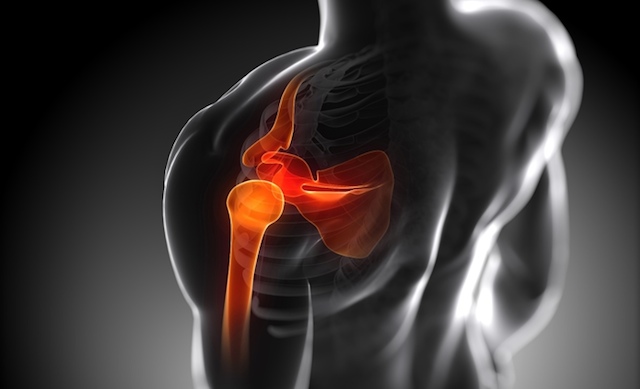
People who seek medical care don’t expect that the treatment will be worse than when they started. Unfortunately, medical malpractice happens far more frequently than many people realize and can have severe repercussions for those affected. These dangers shouldn’t be taken lightly, from misdiagnosis to botched surgical procedures and even wrongful death. This blog post examines the most common consequences of medical malpractice and explains how patients can protect themselves against these risks.
What is medical malpractice, and how does it occur?
Medical malpractice is when a healthcare professional did not provide the appropriate standard of care to their patient, causing harm or injury. This type of negligence can take many forms, such as misdiagnosis, errors during surgery, improper medication administration, or failure to monitor a patient’s condition properly. Medical malpractice can devastate patients and their families, often leading to long-term disability, chronic pain, or even death. This is why those in need of legal support should seek qualified medical malpractice attorneys immediately. This way, they can ensure that they receive the best possible outcome in their case.
-
Financial Loss
Devastating consequences of medical malpractice include the financial burden it can place on patients and their families. When a medical professional makes a mistake, it can lead to prolonged hospital stays, extra medical procedures, and lost wages from missed work. These expenses can add up quickly and cause significant stress for those affected. In certain cases, the financial loss can be permanent, preventing individuals from being able to afford the care they need in the future. It’s vital to seek legal guidance if you or a loved one has experienced financial loss due to medical malpractice to ensure that you are adequately compensated for the damages.
-
Physical Pain and Suffering
It’s important not to overlook the physical and emotional pain that can result from even minor medical errors. From surgical complications to misdiagnoses, medical malpractice can cause patients to suffer physically for extended periods, leading to lost wages and mounting medical bills. Even more concerning is the toll that experiencing physical pain and suffering can take on a patient’s mental health, leading to anxiety, depression, and other related conditions. Medical professionals must take responsibility for their mistakes and work to prevent such avoidable consequences.
-
Inability to Work
Another such consequence of medical malpractice is the inability to work. When a patient is harmed due to medical negligence, it can result in injuries that prevent them from performing their job duties, leading to lost wages and a diminished quality of life. For example, a surgeon’s careless mistake during a surgical procedure could cause nerve damage, resulting in the patient’s inability to use their hands properly, effectively putting their career as a musician or artist in jeopardy. The impact of medical malpractice can be significant and far-reaching, affecting not only the patient but also their loved ones and dependents. Medical professionals must provide the highest care and responsibility to avoid such devastating consequences.
-
Emotional Trauma
Facing the consequences of medical malpractice can be emotionally traumatic. Suffering injury or illness due to a healthcare provider’s negligence can shake a patient’s trust in the medical system and their body. Feelings of anger, frustration, and anxiety are common among victims of medical malpractice. These emotions can be incredibly intense if the malpractice results in a permanent disability or loss of life. Coping with the emotional aftermath of medical malpractice can be a long and challenging process, requiring support from loved ones and potentially even professional help. It is crucial for patients and their families to understand that these emotional consequences are expected and valid and to seek the support they need to heal from the trauma.
-
Loss of Quality of Life
Patients can suffer from injuries and ailments that can impact their overall well-being when a medical professional fails to provide the expected level of care. These consequences can range from pain and disabling conditions to long-term disabilities that alter the course of their lives. For those who have experienced medical malpractice, the loss of quality of life can be profound, affecting not just their physical health but their emotional and mental health. Medical professionals must uphold the highest standards of care to minimize the risk of such life-changing consequences.
-
Wrongful Death
When medical professionals fail to provide a reasonable standard of care, patients can suffer from injuries and illnesses that may ultimately result in death. Although it is difficult to imagine the pain and grief that families experience after losing someone due to medical negligence, it is vital to seek legal action to hold those responsible accountable for their actions. Doing so can prevent other patients from suffering the same fate and promote excellent safety within the medical industry.
Ways to protect yourself from medical malpractice
When it comes to receiving medical care, it’s essential to protect yourself from the possibility of medical malpractice. One fundamental way to do this is by getting a second opinion from another healthcare provider. This can help you confirm a diagnosis, treatment plan, or medication recommendation. It’s also important to understand your rights as a patient, such as your right to access your medical records and informed consent. Don’t be afraid to speak up or ask questions if you don’t understand something or if something doesn’t seem right. Another helpful tip is to research your doctor, hospital, and practice beforehand. This can provide insight into their experience, qualifications, and track record. By taking these proactive steps, you can help ensure that you receive safe and effective medical care.
Medical malpractice is a serious issue that can have severe consequences for those affected. It is vital to be aware of the signs and symptoms of medical malpractice so that it can be avoided or addressed as soon as possible. It is critical to do your best to protect yourself from medical negligence and ensure you get the care you need without suffering any avoidable harm. This blog post encourages individuals to use the information provided as a tool to understand better medical malpractice and ways to protect oneself against it.


















Follow Us